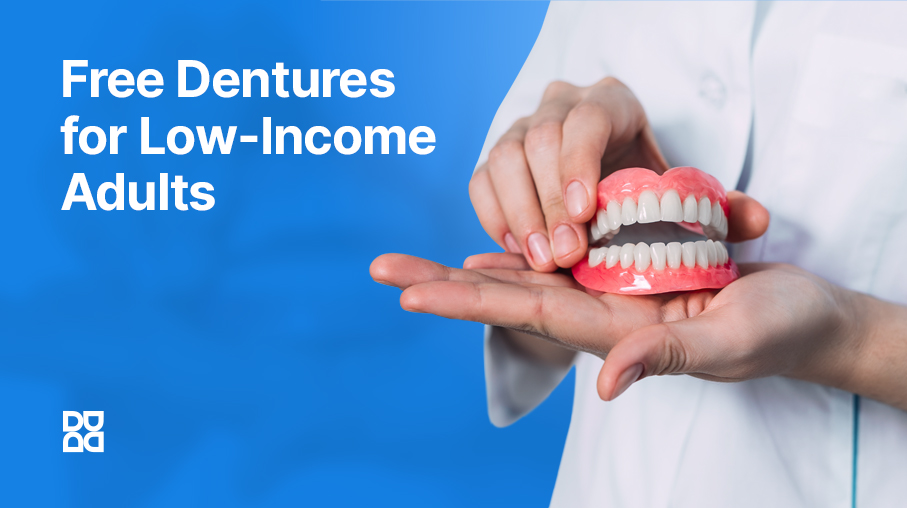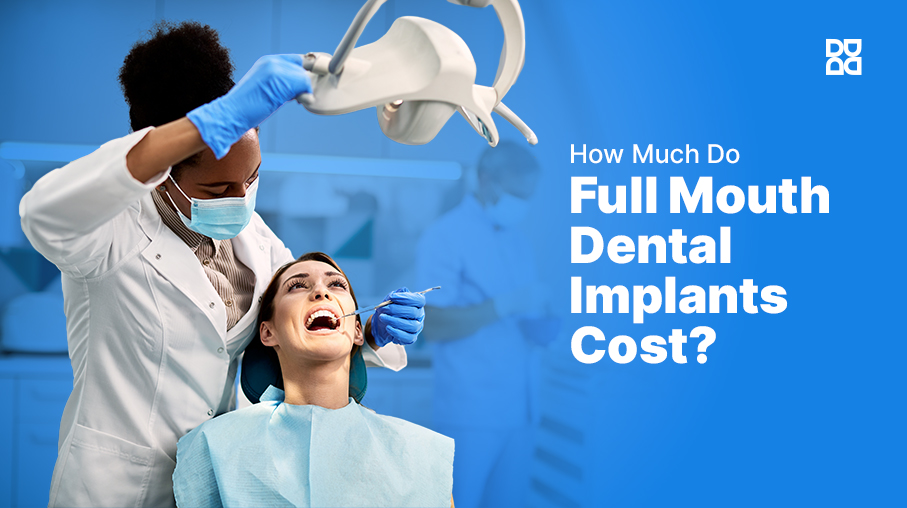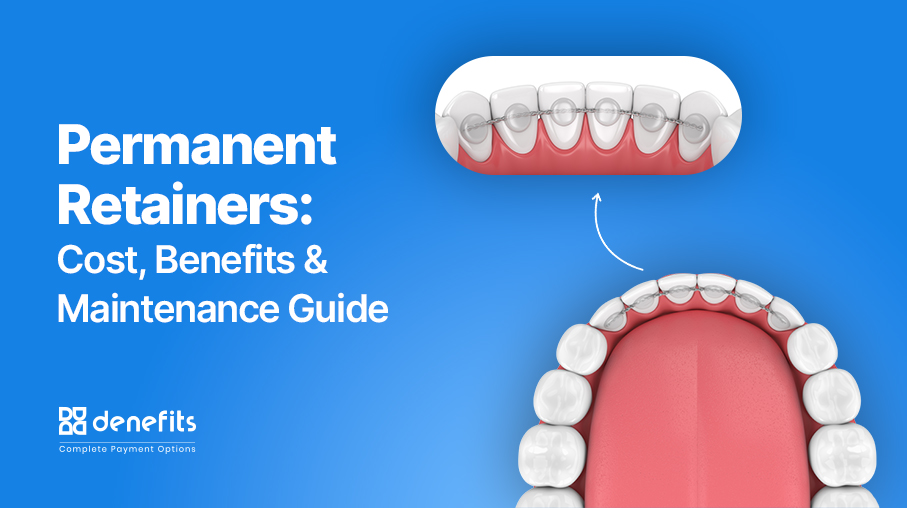
It's true to say that a healthy mouth is often indicative of good overall health. Therefore, it's imperative to undergo regular dental check-ups to preserve your gum health. Though, no dentist can identify what’s happening beneath the surface on its own. Dental X-rays assist dentists in determining the root cause of the disease.
However, the expense of your dental X-ray might significantly affect the total cost, particularly if you lack insurance coverage. Typically, the teeth X-ray cost without insurance is $30-$800. And, it varies according to the type and number of X-rays required.
If you're seeking information on “How much are dental X-rays without insurance?” or “How much do dental X-rays cost?”, you've landed in the right place.
Keep scrolling to ensure you're fully informed about the implications of dental X-ray costs on the final bill.
What Are Dental X-Rays?
Dental X-rays, also known as radiographs, are images taken of the teeth, bones, and surrounding tissues within the mouth. They are essential diagnostic tools used by dentists to assess oral health, diagnose problems, and plan treatments. As a new patient, you'll likely have dental X-rays taken to give your dentist a comprehensive understanding of your dental condition, particularly if you lack prior X-rays from previous dental visits. Usually, teeth X-ray cost without insurance lies between $30-$800.
What Is the Need for Dental X-rays?
Spending on dental X-rays now can prevent future dental complications!
While they involve minimal radiation exposure, their benefits in terms of preventive care and treatment far outweigh the risks.
Further, here is what teeth X-rays majorly detect:
- Missing teeth
- Extra teeth
- TMJ disorders
- Bone loss
- Cavities
- Cysts and tumors
- Wisdom tooth development
- Traumatic injuries damage
How Many Dental X-rays Are Safe to Have in a Month?
The frequency of dental X-rays varies depending on factors like:
- Age
- Current oral health status
- Presence of oral disease symptoms
- Prior history of gum disease or tooth decay
- Additionally, dental X-rays are recommended to avoid during pregnancy as electromagnetic radiation poses potential risks to the unborn child.
- Nonetheless, it's a wise approach to receive dental X-rays before your dental procedures.
Average Dental X-Ray Costs By Type
The teeth X-ray cost without insurance generally depends upon factors such as the type and number of X-rays influencing the final price.
| Category | Type of Dental X-Ray | Average Cost | Cost Range |
|---|---|---|---|
| Intraoral | Bitewing | $45 | $30 to $60 |
| Intraoral | Occlusal | $65 | $30 to $100 |
| Intraoral | Full-mouth series | $250 | $100 to $400 |
| Intraoral | Periapical | $45 | $30 to $60 |
| Extraoral | Panoramic | $200 | $100 to $300 |
| Extraoral | Cone-beam CT | $480 | $160 to $800 |
| Extraoral | Cephalometric (Ceph) | $240 | $80 to $400 |
Understanding the types of dental X-rays and their frequencies can provide a clearer perspective on your query, “How much is a dental X-ray without insurance?” Dental X-rays fall into two main groups: intraoral and extraoral X-rays.
Intraoral X-Rays
Bitewing
Typically, your dentist will suggest having 4 bitewing X-rays taken every 6 to 12 months to gain a comprehensive understanding of your oral condition.
Occlusal
Every six to 12 months, it's standard to have two periapical X-rays of the front teeth taken.
Full-mouth series
This X-ray captures images of all the teeth in both the upper and lower jaws. Generally, a set of dental X-rays includes four bitewing X-rays and 12 to 14 periapical images.
Periapical
It captures images of the entire tooth from the crown (the visible part) to the root tip, as well as the supporting bone. Dentists usually advise having periapical X-rays for the front teeth taken every six to 12 months as part of regular dental care.
Extraoral X-rays
Panoramic
Unlike intraoral X-rays, which capture images of individual teeth and sections of the mouth, The dentist recommends getting these X-rays every 3 to 5 years.
Cone-beam CT
A cone-beam computed tomography (CBCT) X-ray provides 3D images of bone density, volume, and quality, and can be done every 12-24 months.
Cephalometric (Ceph)
A cephalometric X-ray is usually taken before and after orthodontic treatment to anticipate and reveal the effects of tooth movement.
Average Dental X-Ray Costs By Place
The average cost of teeth X-rays in various U.S. states is as follows:
| States | Average Cost |
|---|---|
| Alaska | $128 |
| California | $117 |
| Louisiana | $106 |
| New York | $116 |
| Illinois | $108 |
| Iowa | $90 |
| Texas | $101 |
| Massachusetts | $116 |
| Florida | $104 |
| Georgia | $97 |
| Arkansas | $94 |
Does Insurance Cover the Cost of Dental X-rays?
Dental insurance coverage for dental X-rays varies depending on the specific insurance plan and the type of X-ray being performed.
However, some plans may cover X-rays at 100% of the cost, while others may require the patient to pay a portion of the expense out-of-pocket. Furthermore, coverage for more specialized X-rays, such as cone-beam CT scans or cephalometric X-rays, may be subject to different rules and limitations.
How to Pay for Dental X-Rays if You're Uninsured?
Dental X-rays play a vital role in preventive healthcare. Not only does it enable dentists to detect and tackle minor dental issues proactively, but it also helps prevent dental conditions from deteriorating.
Regrettably, individuals lacking insurance coverage may find themselves financially strained by the cost of dental X-rays, given that these procedures are essential for uncovering what lies beneath the surface of their teeth.
If you find yourself in need of dental X-rays but don't have insurance coverage, there are several options available to help cover the costs:
◾Community Health Centers
Dental assistance for low-income individuals is available through the Health Resources and Services Administration. Also, you can look into local community health centers or dental clinics that offer reduced-cost or sliding-scale fee services based on income.
◾Discount Dental Plans
Consider joining a discount dental plan to afford the cost of teeth X-rays, especially without insurance. Moreover, these plans involve paying an annual fee to access discounted rates at participating dental providers.
◾Payment Plans
Some dental practices offer payment plans allowing patients to spread out the cost of dental services, including X-rays, over time. These plans may have low or no interest rates, therefore making the expenses more manageable to pay.
◾Dental Schools
While services are provided by students in dental schools or hospitals, under the supervision of licensed professionals, they can be an affordable option for quality dental care.
◾Dental Grants & Charities
Grants such as the DentaQuest Community Response Fund and the Healthier Smiles Grant Program, along with charitable initiatives like Smiles Change Lives and Access to Care, exist to help individuals afford dental care costs.
Before scheduling dental X-rays, it's advisable to contact dental offices in your area to inquire about ‘teeth X-ray cost’ without insurance, payment options, and any available discounts or financial assistance programs. Additionally, discussing your financial situation openly with the dental office staff may help them provide suitable options to help you cover the costs effectively.
Flexible Payment Plans to Afford Dental X-rays
Insurance coverage and numerous financial assistance options are accessible throughout the U.S. Although, availing of them isn't always within reach. Moreover, counting on grants or charity can be challenging due to its time-consuming process. To overcome this challenge, a practical and easily accessible option is dental payment plans.
Many dental practices partner with Denefits, offering dental payment plans that eradicate the need to pay for expenses altogether. Moreover, it approves 95% of patients without the need for credit check, thereby shortening wait times and improving access to vital dental procedures, such as X-rays.
The Bottom Line
Though dental X-rays may come with a considerable price tag, their long-term benefits outweigh the cost. They not only prevent potential future expenses and discomfort but also assist in managing your finances. To conclude, the teeth X-ray cost without insurance usually falls somewhere between $30-$800. Despite not being universally regarded as a costly procedure, a teeth X-ray can still weigh heavily on the finances of certain individuals. Also, when you receive the total dental expenses, it's evident that not everyone can manage to cover the entire cost.
So, if traditional insurance or grants aren't accessible to cover your dental X-ray expenses, consider Denefits.
Sign up to learn more.
FAQs
Q1. What Is the Cost of Dental X-Rays and Cleaning Without Insurance?
The cost of dental X-rays can range from $20 to $250 or more per X-ray, depending on the type. The cost of a dental cleaning without insurance typically ranges from $75 to $200 or more, depending on the complexity of the cleaning (e.g., regular cleaning vs. deep cleaning) and the individual dental practice.
Q2. How Much Does a Dental Exam Cost Without Insurance Near Me?
A basic dental exam typically ranges from $50 to $200 or more, depending on the practice and location.
Q3. Are DX-Rays Safe During Pregnancy?
Dental X-rays during pregnancy are generally considered safe when proper precautions are taken. However, it's important to minimize radiation exposure during pregnancy to reduce any potential risks to the developing fetus.
Q4. How Often Should You Get Dental X-rays?
The frequency of dental X-rays depends on various factors, including your oral health status, age, and risk of dental problems.
Q5. Can I Refuse a Dental X-Ray?
Yes, you have the right to refuse a dental X-ray. Your dentist should respect your decision and provide alternative options for diagnosing and treating your dental issue, if possible. However, it's important to communicate openly with your dentist about your concerns and understand the potential consequences of refusing the X-ray.
Q6. Are There Risks With Getting Dental X-Rays?
While dental X-rays are generally considered safe when appropriate precautions are taken, there are still some risks associated with them. The greater the exposure to this radiation, the greater the risk to the patient's health. However, the likelihood of developing cancer from X-rays is generally low.


